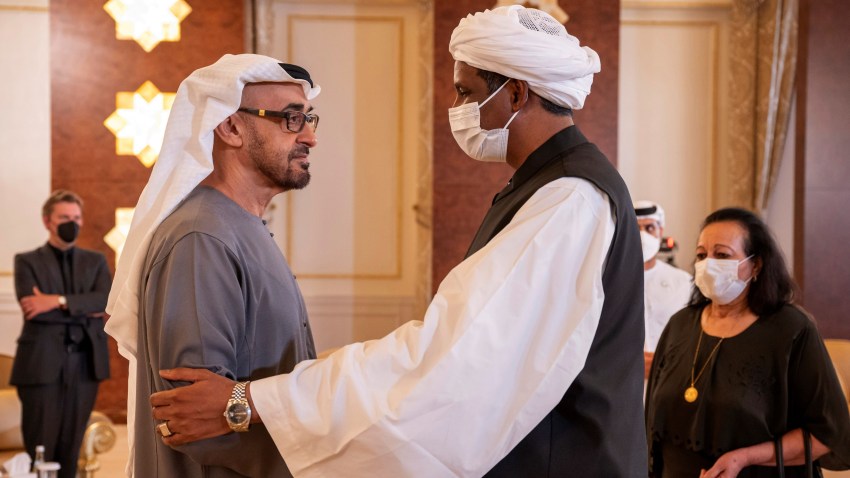In the past several weeks, Iranian cargo planes have been spotted landing in Port Sudan, the seat of Sudan’s military-led government since Khartoum fell to its rival in the country’s civil war, the Rapid Support Forces. Last month, also, the RSF shot down an Iranian drone being operated by the Sudanese armed forces. Both developments corroborate allegations that the Sudanese government’s recent reestablishment of diplomatic ties with Iran has been accompanied by military support in the conflict that broke out last April.
Sudan broke off ties with Iran in 2016 at the behest of Saudi Arabia, after Iranian protesters attacked Saudi diplomatic missions in Iran. Its decision to reestablish them marks a dramatic shift in the Sudanese government’s reshuffling of alliances, while sending geopolitical shockwaves throughout the Horn of Africa, where the United Arab Emirates has been the primary Gulf player for the past several years. The rapprochement underscores the many ways in which Abu Dhabi’s stance on Sudan’s civil war has backfired, putting its goals in Sudan in serious jeopardy.
Relations between Sudan and the UAE have deteriorated dramatically in recent months as a result of Abu Dhabi’s alleged support for the RSF paramilitary group, led by Mohammad Hamdan Dagalo, or Hemedti. In January, Gen. Yasser Atta, the Sudanese armed forces’ second in command, accused the UAE of being “a mafia state” on account of those claims, while Sudan’s United Nations ambassador blasted the UAE for its involvement in front of the Security Council, accusing Abu Dhabi of providing the RSF with heavy weapons and drones. The Sudanese government’s claims were confirmed by a U.N. Panel of Experts report released last month, which deemed the allegations that the UAE is arming the RSF to be “credible.”

